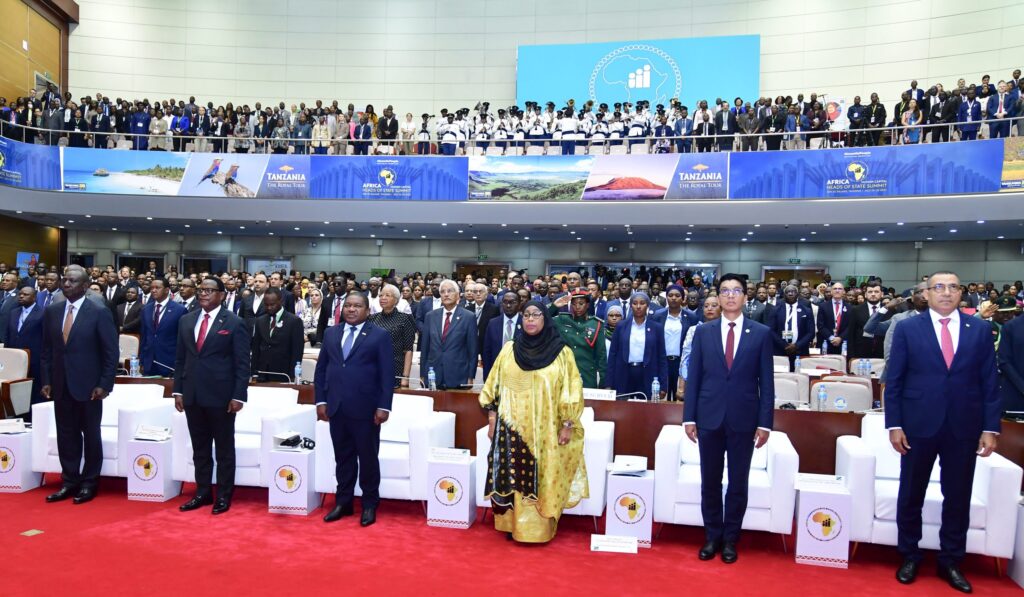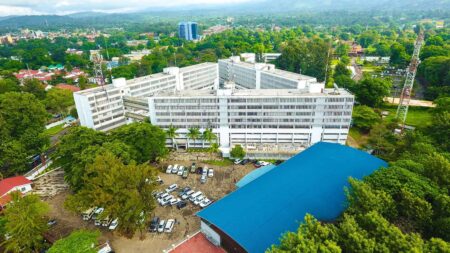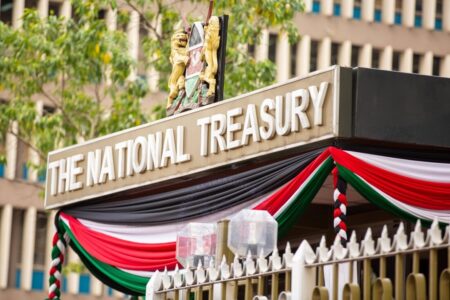- The central role of human capital in development is fast catching up with the developing world.
- Tanzania President Suluhu Hassan says there is no right time to deliberate on the human capital issue than now.
- President Ruto of Kenya says Africa must deliberately to make it possible for the youth to access job opportunities.
The vital role of Africa’s human capital is indispensable. It is a powerful tool in driving the growth of economic investments in the continent of 1.3 billion people. Africa has a combined GDP of nearly $3.1 trillion and over 40 percent of the population is under the age of 15 years and younger. It is therefore important that Africa’s human capital is aligned optimally to foster growth.
The central role of human capital in development is fast catching up with the developing world. It is in light of this that the just ended Africa Human Capital Heads of State Summit, held in Dar es Salaam from July 25-26, revealed crucial propositions that can see Africa compete at the global stage.
The summit came to life in response the need to bring human capital issues at the center of development for economic growth. Heads of state from Tanzania, Kenya, Malawi, Sierra Leone and Mozambique echoed their key messages across the two day summit.
The Heads of State underscored the need of linking investments in human capital to economic growth and harnessing the demographic dividend by addressing learning poverty and the skills gap for young people and women.
Also Read: The economics of human remains restitution in Africa
Human capital looks like in Africa
According to the World Bank, learning poverty which is the share of children unable to read and understand a simple text by the age of 10, stands at 89 percent in Africa.
Estimates from African Development Bank (AfDB) show that number of youth will double to 850 million by 2050. In an interesting twist, nearly 38 percent of youth in Sub-Saharan Africa want to move permanently to another country.
Countless times African governments have been seen to slowdown sustainable demographic growth, pulling down all developmental capabilities. Consequently, as the rest of the developed world, US, Japan and South Korea, registering declining birth rate—the situation in Africa is rather different.
World Economic Forum (WEF) finds the region to feature untapped potential and hurdles at the same time. WEF 2022 report noted that, Africa’s burgeoning young population keeps being characterized as merely a recipient of human development infrastructure, including higher education.
“When it comes to creating value, Africa’s youth is anything but passive. The millennial generation has lived through the continent’s meteoric rise in mobile and internet penetration rates. Today, African youths are increasingly taking an active role in shaping their future. In Accra, Nairobi, Cairo or Benguerir, fully fledged start-up scenes are disrupting how we think about African agriculture, industry, IT and sustainability,” the report read in part.
Doubling down on the matter, Tanzania Vice President Philip Mpango pointed various issues to deal with for success.
“Human capital investment is longterm in nature, therefore, it requires low cost financing with low term maturity” said Mpango.
Moreover, the region is not stagnant, WEF report pointed that, young people (under the age of 35) are spearheading businesses in the continent. In 2021, a record-breaking achievement was registered, featuring Africa start-ups securing over $2 billion in funding.
Tanzania tapping best minds
“I am of the view that regional and multinational financial institutions need to device innovative financing solutions in support of Africa’s drive to accelerate human capital development” said Mpango.
However, human capital development stakeholders in Tanzania find grassroot level preparation to be essential in harnessing best minds, talents to compete.
According to Ocheck Msuva, founder of Bridge for Change, one of Tanzania’s youth-led NGO focused on human capital development on leadership and career guidance, quality human capital is produced when integrity, hardwork and unwavering desire to achieve results is groomed at a young age.
“We need to change our culture, from parenting to learning. Our families should be the breeding ground for innovation and challenging the status quo,” Msuva added.
Msuva argues that, the region needs to open itself to other regions for learning and catching up fast and swiftly as competition keeps getting high across markets.
“Africa should allow its young and next generation get exposed and challenge accordingly—to build competitive and competent human capital” he added.
Africa’s human capital—Presidents’ view
The world bank argues that, Africa’s average Human Capital Index (HCI) was the lowest globally. A large proportion of African countries feature at the bottom of the HCI.
Tanzanian President Samia Suluhu Hassan, commented on timeliness of executing human capital development in the region. “There is no right time to deliberate on the human capital issue than now. For over a decade, the continent has passed through various stages of growth. Major improvements have been achieved in different sectors of the economies,” she said.
Her excellency streamlined her desire to enable youth family planning and sexual reproductive health education priorities.
On the other hand, Kenya President William Ruto, argued for Africa taking charge of its human capital. “Our continent has been defined by other, in the context of being a continent of problems, disease, poverty, conflict, ignorance. We are defining our continent ourselves a fresh.”
Facing multitude of challenges for its youth such as unemployment and high cost of living, Kenya’s youth desires opportunities. They also seek a conducive environment to guarantee better outcomes in an increasingly competitive economy.
“Human capital is the asset this continent has. Therefore, we must do whatever it takes to prepare this asset, that is, our young people. It is the reason why we say young people are going to define becomes of this continent,” said Dr Ruto.
“It is not enough to say that once this young people come out of college or universities they will be self-employed. We have to be deliberate to make it possible for them to access opportunities for jobs,” said President Ruto.
Malawi human capital development
Meanwhile, President Lazarus Chakwera—views human capital development from a futuristic standpoint. He called on need to enhance young people’s education, health and innovation aspirations.
“When we are talking about Malawi 2063 an inclusively wealthy, industrialized and self-reliant nation and Sustainable Development Goals; these things cannot happen without human capital development,” said Chakwera.
Further, Sierra Leone President Julius Maada Wonie Bio finds high quality and relevant education to be the great equalizer. This is especially so when it comes to shaping the right human capital for the region’s achievement.
“We need education that meets the need of the future and the digital world. 33 per cent of my cabinet are young people, 33 per cent are also women. Women are more than 50 per cent of the population. We are building necessary digital infrastructure. We have trained more teachers for quality and also to make sure that they can go as far as they can be able to give quality education.”
The case for Mozambique
Mozambique President Filipe Nyusi said investing in young people’s minds and talents is essential in unearthing the region untapped potential.
“If we invest in human capital and believe that women and men have equal ability in doing work, that can help us in dealing with challenges. We can use the resources available to develop our countries. So, we need those skills in our governments and investing in education, health and other places,” Nyusi explained.
Overall, Africa Human Capital Heads of State Summit indicated how the region exhibits the best strategies and commitment to pursue various human capital-enhancing projects across most fields.











